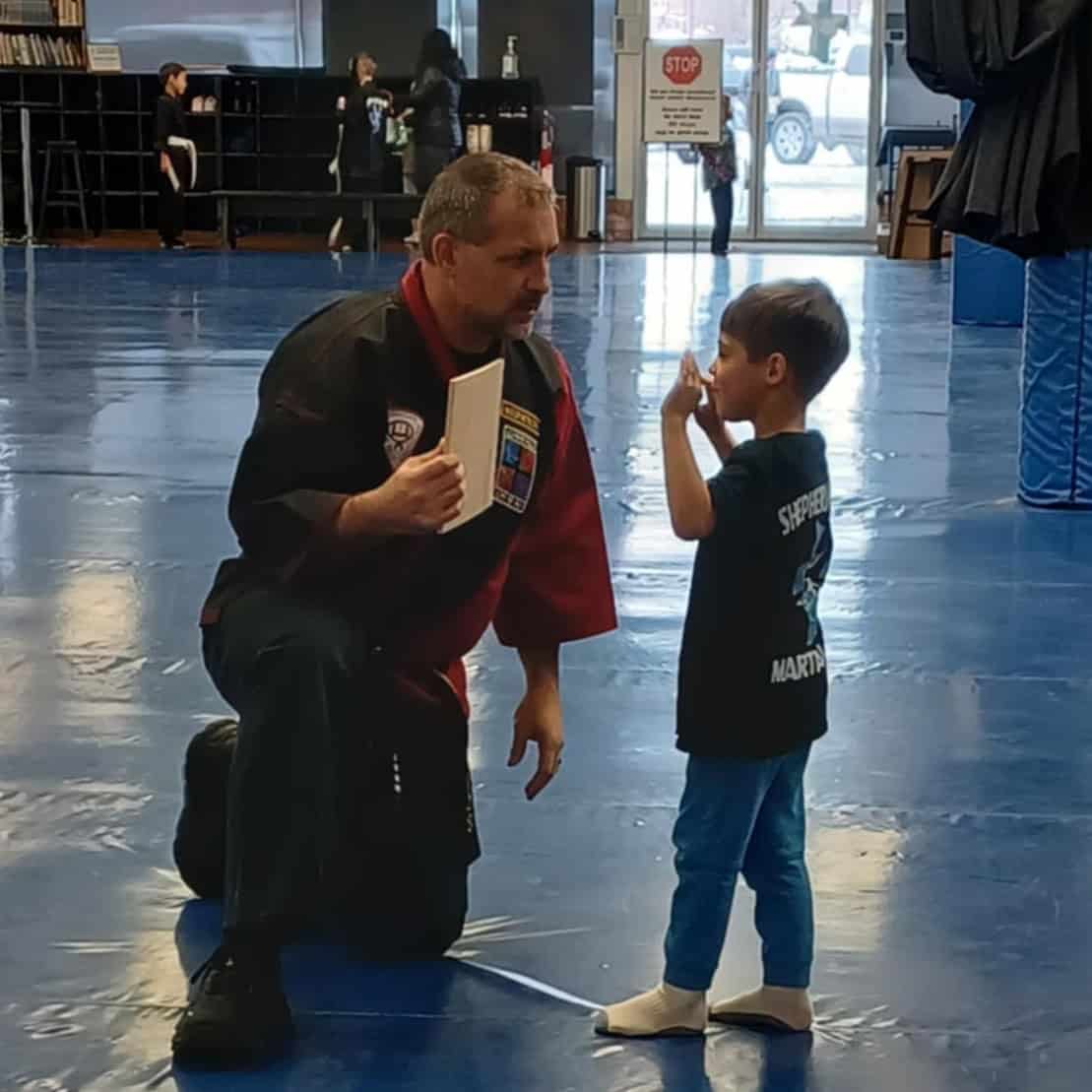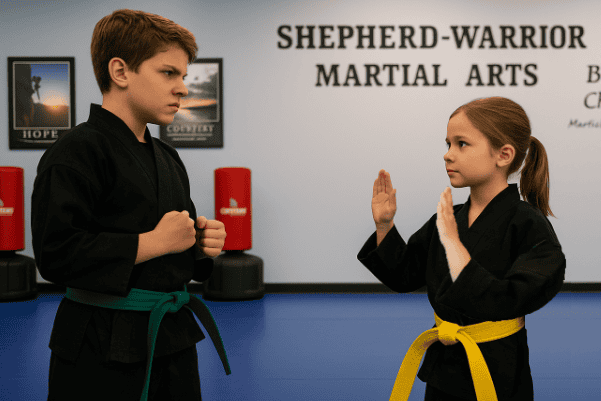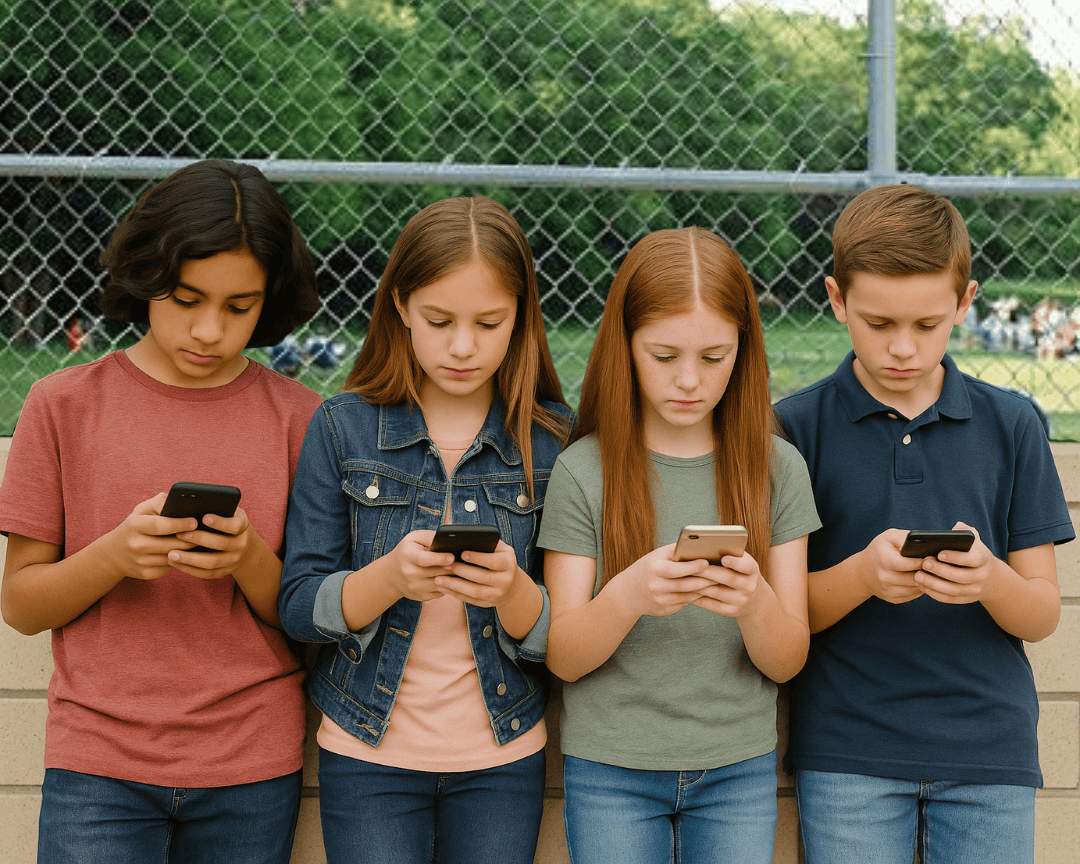Speaking Up, Listening Well, and Building Real Friendships
How Martial Arts Boosts Kids’ Communication & Social Skills
In today’s hyper-connected yet emotionally disconnected world, many children struggle with the most fundamental of human skills: communication. Whether it’s speaking up in class, navigating peer conflict, or simply listening respectfully, these are the moments that shape a child’s confidence, character, and relationships for life.
Martial arts may not be the first place parents think of when looking to strengthen a child’s communication skills — but perhaps it should be. In the studio, students don’t just learn how to kick and punch — they learn how to listen attentively, respond respectfully, follow directions, and even take leadership roles as they advance. These are the very same tools they need to succeed in school, at home, and in the relationships that matter most.
The Communication Crisis Among Kids
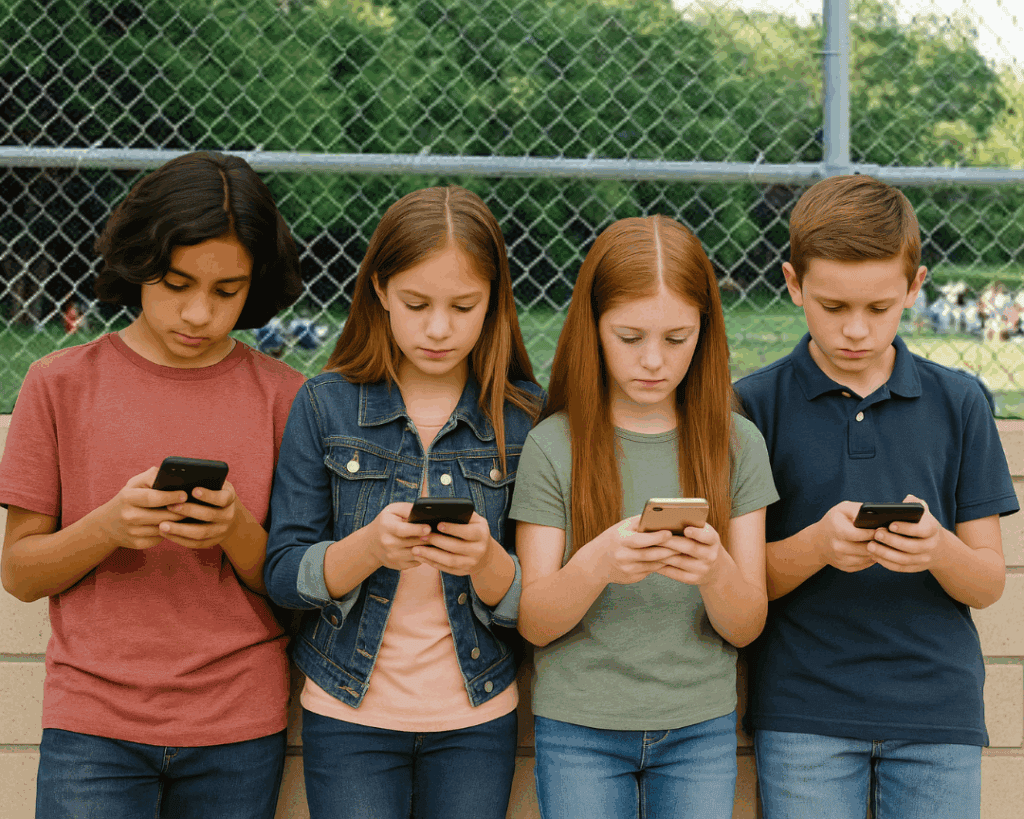
Let’s face it — kids today are surrounded by noise, but not always connection. Between devices, distractions, and shortened attention spans, many children grow up without learning how to express themselves clearly, listen actively, or resolve simple conflicts in healthy ways.
Teachers often report students who blurt out, interrupt, zone out, or lack the confidence to participate in class. Parents see similar patterns at home — from sibling arguments to shutdowns when it’s time to talk about emotions.
The problem isn’t just behavior. It’s a lack of training.
Martial Arts Builds Communication from the Ground Up
What’s beautiful about martial arts is that it approaches communication in a holistic way. From the very first class, students are taught that how you speak, listen, stand, and show respect is just as important as how you strike or block.
Here’s how the process works:
- Active Listening – Students must listen to instructions carefully in order to perform techniques safely and correctly. This builds auditory processing and memory skills.
- Clear Verbal Expression – They learn to respond with confidence (“Yes sir!” / “Yes ma’am!”), ask questions, and give feedback during partner drills — developing voice control and verbal precision.
- Nonverbal Communication – Through posture, eye contact, stance, and gesture, they learn to project calm, assertiveness, and respect — vital skills in social and school settings.
- Emotional Regulation – Children are taught how to breathe, focus, and control emotional responses, especially when frustrated or challenged. This prevents outbursts and teaches self-control.
- Respectful Peer Interaction – Partner drills, games, and role-playing create opportunities to build empathy, take turns, and resolve conflict appropriately.
In short, the dojo becomes a safe and structured laboratory for healthy social development.
Real-Life Story: From Shy to Strong Communicator
Take Lily, a sweet 8-year-old who barely whispered when she first walked into our dojo. She wouldn’t make eye contact, and if a peer asked her to partner up, she would simply freeze or shake her head. Her parents shared that she often cried when asked to speak in class, and avoided birthday parties because she was too anxious to talk to other kids.
Over the course of several months of consistent martial arts training, something changed.
Lily learned to respond, to say “Yes sir!” and “Thank you!” with her instructors. Then she began high-fiving her classmates. She was taught to kiai (yell with power and confidence), and though it was hard at first, her voice grew louder and more sure. Now, she sometimes volunteers to lead warm-ups in class — and even raises her hand to answer questions at her school.
Martial arts didn’t just improve Lily’s kicks — it helped her find her voice.
Why It Works: Safe, Repetitive Practice in a Growth-Focused Environment
Martial arts provides something most environments don’t: regular, structured repetition in speaking, listening, and responding — within a framework of discipline and encouragement.
Kids don’t feel pressured to “perform” socially in the same way they might at school or on a sports team. Instead, they’re coached to grow step-by-step in confidence, clarity, and poise.
And because martial arts isn’t just physical — it engages the mind, body, and spirit — kids begin to internalize values like patience, respect, humility, and courtesy. These values fuel better conversations, reduce conflict, and foster stronger relationships.
A Biblical Perspective: Let Your Words Build Up, Not Tear Down
The Bible has a lot to say about communication — especially the kind that edifies.
“Let no corrupting talk come out of your mouths, but only such as is good for building up…”
— Ephesians 4:29
In a world where many kids hear put-downs, sarcasm, and bullying daily, Shepherd-Warrior Martial Arts provides a counter-culture environment. Instructors model uplifting speech. Students are encouraged to speak respectfully to one another. And the studio becomes a place where words are used to build, not break.
In fact, one of our foundational rules is: “Speak to people the way you’d want them to speak to you.”
This Christ-centered approach to communication teaches children that how they speak matters — and that their words have the power to influence others for good.
Friendships Forged in Respect, Not Popularity
One of the unexpected benefits parents often tell us about is the quality of friendships their children build in martial arts.
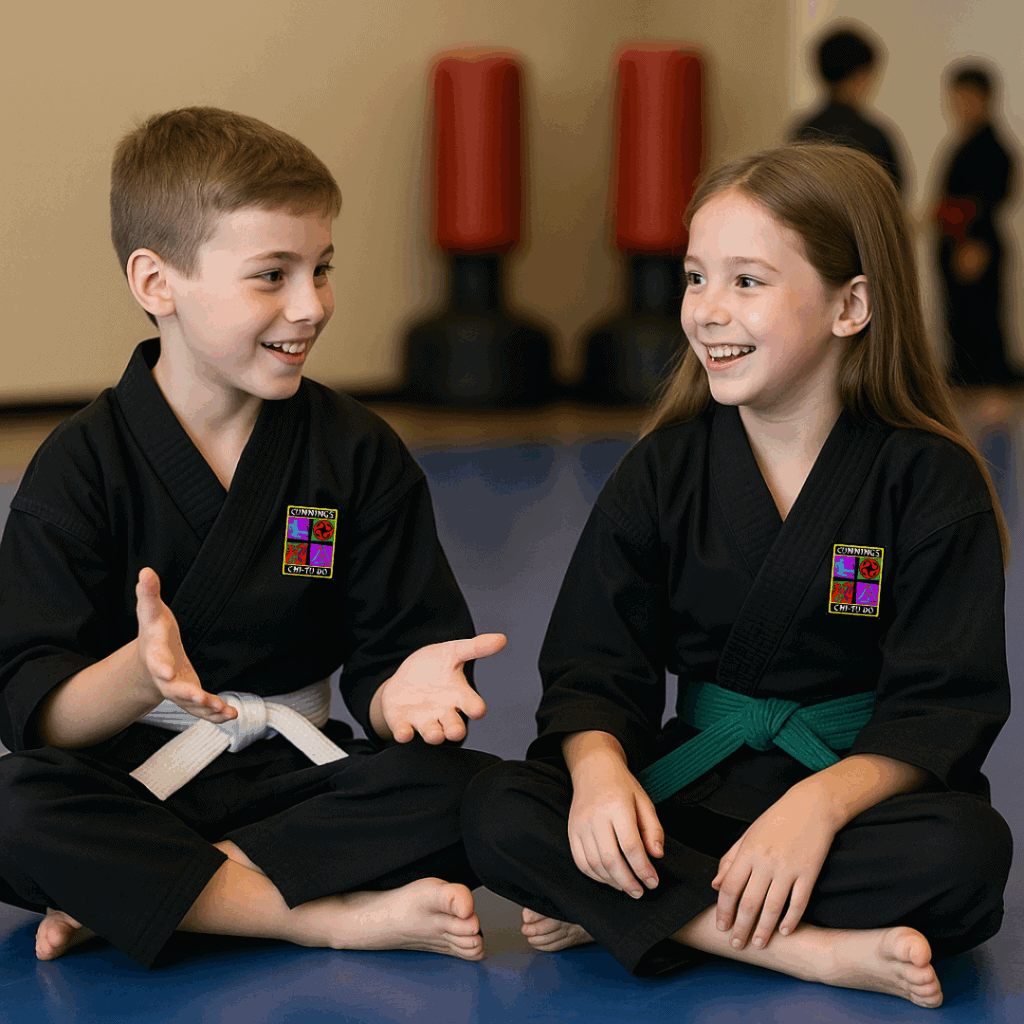
Unlike school, where social status can depend on looks, athleticism, or popularity, the dojo is a level playing field. Students are ranked not by social hierarchy but by belt level, attitude, effort, and respect.
Friendships here aren’t about cliques — they’re about encouragement. Kids cheer each other on when someone breaks a board, learns a new form, or earns a new belt. They train together, sweat together, and grow together.
It’s not unusual to hear a student say something like, “I didn’t have many friends at school, but here, I feel like I belong.”
Martial Arts Helps With Peer Pressure and Standing Up for What’s Right
Communication isn’t just about speaking well — it’s also about asserting boundaries, resisting negative influences, and standing up for what’s right.
Martial arts students learn to say “no” with confidence. Through role-playing and anti-bullying scenarios, they practice:
- Refusing peer pressure.
- Speaking assertively but respectfully.
- Seeking help from a trusted adult.
- Walking away when necessary.
They also learn the importance of tone of voice, eye contact, and body language in sending clear messages — all without violence or aggression.
In this way, martial arts empowers kids to advocate for themselves — and others — with wisdom and courage.
A Word to Parents: It Starts with One Class
We often meet parents who say, “My child struggles to make friends,” or “He just doesn’t know how to talk to people,” or “She’s too afraid to speak up.”
We get it. And we see transformation every week.
Martial arts is one of the few environments where introverts find confidence, talkers learn to listen, and leaders learn to serve. Communication isn’t an afterthought — it’s woven into the fabric of every class.
Real-World Skills That Carry Into the Classroom
The social and communication benefits don’t stay on the mat. Parents and teachers often notice that martial arts students:
- Raise their hand more often in class.
- Respond to directions more quickly and clearly.
- Have greater patience in group settings.
- Resolve conflicts more maturely.
- Express themselves with respect at home.
It’s not magic — it’s discipline, repetition, and a value-driven community. And it works.
Final Thought: Speak Life, Live Strong
At Shepherd-Warrior Martial Arts, we believe every child has a voice — and that voice can be used for strength, truth, and encouragement.
Through martial arts, kids develop the communication skills they need to thrive — in school, at home, and in their hearts.
If your child struggles with confidence, peer relationships, or listening skills, give them the gift of a place where communication is taught, modeled, and practiced with love and structure.
We’ll help them learn to speak up, listen well, and build friendships that last.
🥋 Want to see the transformation yourself?
Join us for an intro class and see how our Christ-centered martial arts program helps your child grow — inside and out.
📍 1212 Grand Ave, Suite 11, Billings 59102
📞 Call/Text: (406) 591-2864
🔗 https://shepherdwarriormartialarts.com/start-learning-martial-arts
Recent Posts
